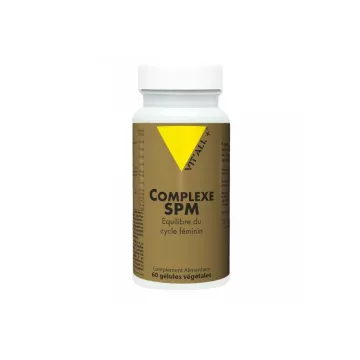
PCOS (Polycystic Ovarian Syndrome) is a complex hormonal disorder affecting many women of childbearing age. Because of its multiple manifestations, it is often difficult to diagnose. Find out here the answers to the most frequently asked questions about PCOS, its symptoms, its causes, and solutions for living better with this syndrome.
What is PCOS?
PCOS (Polycystic Ovarian Syndrome) is a common endocrine disorder affecting around 1 in 10 women. It is characterized by a hormonal imbalance that disrupts the normal functioning of the ovaries. This disorder often leads to excessive production of androgen hormones (male hormones), causing a variety of symptoms, including:
This syndrome can also increase the risk of developing complications such as type 2 diabetes,hypertension or cardiovascular disorders.
What causes PCOS?
The exact causes of PCOS are not fully understood, but several factors seem to play a role:
What are the main symptoms of PCOS?
PCOS manifests itself differently in different women. Here are the most common symptoms:
Some women may also suffer from chronic fatigue,anxiety or depression, making this syndrome even more difficult to live with on a daily basis.
How is PCOS diagnosed?
The diagnosis of PCOS is based on three main criteria defined by the Rotterdam criteria:
At least two of these three criteria must be met for a diagnosis to be made. The doctor may also order blood tests to assess hormone levels and rule out other endocrine disorders.
Is PCOS a cause of infertility?
Yes, PCOS is one of the main causes of infertility in women. The absence of regular ovulation prevents the release of an egg each month, making conception difficult. However, this does not mean that pregnancy is impossible.
Several treatments can help stimulate ovulation, such as :
In more complex cases, in vitro fertilization (IVF) may be considered.
How is PCOS treated?
PCOS treatment depends on each woman's symptoms and goals (cycle improvement, acne treatment, desire for pregnancy, etc.). Here are the most common options:
Lifestyle modifications:
Hormonal treatments:
Medications for insulin resistance:
Metformin is often used to improve insulin sensitivity and promote ovulation.
Fertility treatments for women wishing to conceive.
Can PCOS be prevented?
It's not possible to totally prevent PCOS, but adopting a healthy lifestyle can reduce the risk of developing complications and alleviate symptoms. Here are a few tips: